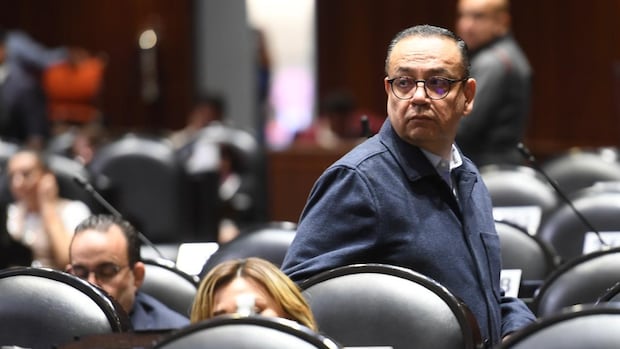The federal government is slashing the number of permanent and temporary immigrants it’s admitting to Canada — but among the streams that are not only being spared but encouraged to grow significantly are francophones settling outside Quebec.
Prime Minister Mark Carney promised during the last election campaign to raise the francophone immigration target to 12 per cent of all permanent residents admitted outside Quebec by 2029.
That new target, announced with little fanfare, is higher than the 10 per cent the Liberals were planning under former prime minister Justin Trudeau — and well above the less than two per cent annual rate the country had been pulling in for years.
In fact, it took 19 years — until 2022 — for Canada to reach its target of 4.4 per cent of permanent residents admitted outside Quebec being French speakers. The government adopted that goal in 2003 to prevent the further decline of the French language.
Liane Roy, president of the Fédération des communautés francophones et acadienne du Canada, which represents francophone associations outside Quebec, said francophone minority communities must welcome more French speakers, otherwise “a lot of our communities may disappear … especially in rural areas,” and labour shortages will worsen as the population ages.
Bilingualism worth protecting: advocate
At a moment in history when Canada’s sovereignty is under threat by the U.S. president, Roy said Canada’s bilingualism must be defended and enhanced.
“A larger proportion of immigrants who know both English and French means better services to the population in key sectors like health care and education,” she said.
While Canada’s population has steadily increased mainly due to immigration, the size of the francophone population outside Quebec, measured by the first official language spoken, has slipped from 6.1 per cent in 1971 to 3.5 per cent in 2021, according to a federal official languages plan.
Since Canada repeatedly missed its annual francophone admissions target for nearly two decades, Roy said greater increases are needed to make up for the tens of thousands who could have settled in Canada if the government had met its previous targets.
Immigration, Refugees and Citizenship Canada said in a statement it’s boosting francophone immigration because it “strengthens and promotes the vitality of Francophone minority communities, supports their economic prosperity, and helps move toward the restoration and increase of their demographic weight.”
In recent months, the department has held immigration draws specifically for French speakers through its express entry program, which recruits in-demand workers to Canada.
Liberals vow to limit admissions
While Ottawa is increasing the number of French speakers it welcomes, the Carney government is dialling back thenumber of permanent residents, vowing to limit annual admissions to less than one per cent of the population, and capping the number of students and temporary foreign workers at less than five per cent of Canada’s population by 2027.
Those limits — along with a refocusing of Canada’s immigration system to make economic immigrants, including French-speakers, a greater share of the admissions — continue a recent policy shift from the Liberals which significantly cut immigration numbers in 2024 as public concerns over the housing shortage and rising cost of living intensified.
The country aims to admit 395,000 permanent residents in 2025, a decline from the 500,000 it was initially planning for the year.
The new immigration restrictions appear to be working as intended: Statistice Canada reported zero population growth in the first quarter of this year, the second consecutive quarter with a net drop in non-permanent residents.
Given the overall decline in immigration numbers, Raymond Théberge, Canada’s commissioner of official languages, said “sustained efforts will be required across the entire Francophone immigration continuum, from promotion to full integration and retention,” to ensure the higher target is reached by 2029.
His statement also called upon the immigration department to establish “the means, the resources and timeline” to ensure Canada meets the other target, set out in the modernized Official Languages Act, to restore the demographic weight of francophones outside Quebec to 6.1 percent.
Citing recent trends, Roy is confident Canada will get there. The federal government exceeded its six per cent target in 2024 when 7.2 percent of permanent resident admissions outside Quebec were fluent in French (30,550 people).
She wants Canada to eventually reach a 20 per cent target.
Conservative immigration critic Michelle Rempel Garner didn’t answer a request for comment, but her party’s leader, Pierre Poilievre, has pressed the Liberals for deeper immigration cuts, saying he wants more people leaving than arriving “while we catch up.”
One measure Ottawa is now using to enhance immigration among French speakers is the Francophone Community Immigration Pilot.
The Acadian Peninsula in northern New Brunswick has enrolled in the pilot program, which offers permanent residency to skilled workers, and a distillery co-run by Sébastien Roy in Petit-Paquetville, N.B., is taking part.
“A lot of our [customers] speak French, that is their first language and often the only language they speak,” he said of Distillerie Fils du Roy’s clientele.
Roy said immigration has reinvigorated his hometown, which he said was losing its young people. He said he recently hired three French-speaking newcomers who graduated from a local college, and he’s looking to hire three more through a pilot program that’s providing 10 to 20 applications a day.

“By having francophone newcomers we can continue to be francophone, we can continue to operate our businesses, and it brings some young adults in our community,” Roy said.
In Timmins, Ont., where nearly half of the city’s 41,000-plus population speaks French and English, there’s a realization the decline in French speakers needs to be reversed, according to a leader with a post-secondary institution providing support to francophone newcomers.
Mélanie Dufresne with Collège Boréal said recruiting French speakers is important for public services — especially health care where many patients speak only French.
“They want to be able to communicate in their maternal tongue,” said the director of the college’s Timmins campus.
Timmins is part of several immigration programs trying to reverse the French decline, including the Francophone Community Immigration Pilot.







